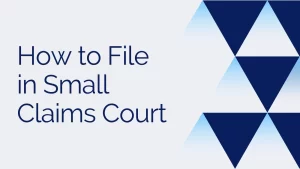Wake County District Court
The Wake County District Court is an essential component of the local judicial system in Wake County, North Carolina. It plays a crucial role in ensuring justice and resolving legal disputes within its jurisdiction. In this article, we will delve into the structure, functions, and significance of the Wake County District Court, as well as explore the challenges it faces and the reforms being implemented to address them.
Introduction
The Wake County District Court serves as the initial trial court for various types of cases, including criminal, civil, and family matters. It is the first point of contact for individuals seeking justice or resolution of legal issues within Wake County. Understanding the workings of the district court is vital for anyone navigating the legal system in this jurisdiction.
Understanding the Wake County District Court
Structure and Jurisdiction
The Wake County District Court is part of the North Carolina Judicial Branch and operates within the geographical boundaries of Wake County. It is organized into various divisions, each focusing on specific areas of law. These divisions include criminal, civil, domestic, and juvenile courts, among others.
The district court has limited jurisdiction, which means it primarily handles cases involving misdemeanors, traffic violations, civil disputes with a financial value under a certain threshold, and family law matters such as divorce, child custody, and child support.
Role and Functions
The primary role of the Wake County District Court is to administer justice and uphold the rule of law within its jurisdiction. It serves as a forum for resolving legal disputes through fair and impartial hearings. The court ensures that individuals receive due process and have their cases heard in a timely and efficient manner.
The district court is responsible for conducting trials, making legal determinations, and issuing judgments. It also oversees pretrial proceedings, such as arraignments, bail hearings, and plea negotiations. In addition, the court handles various administrative tasks related to case management, record keeping, and court finances.
Judges and Court Staff
The Wake County District Court consists of multiple judges who preside over different divisions. These judges are appointed or elected based on the state’s judicial selection process. They are experienced legal professionals with expertise in the areas of law they oversee.
Supporting the judges are court staff, including clerks, bailiffs, and administrative personnel. They play crucial roles in facilitating courtroom proceedings, managing case files, assisting litigants and attorneys, and maintaining order and decorum within the court premises.
Navigating the Court System
Filing a Case
If you find yourself needing to file a case in the Wake County District Court, it’s essential to understand the process. The court follows specific procedures for initiating legal actions. Generally, you will need to prepare the necessary legal documents, such as a complaint or petition, and submit them to the appropriate division of the district court. It is advisable to consult with an attorney or seek legal guidance to ensure the accuracy and completeness of your filing.
Courtroom Proceedings
When your case is scheduled for a courtroom proceeding, it is important to be prepared and familiarize yourself with the process. Courtroom proceedings in the Wake County District Court typically involve the presentation of evidence, witness testimonies, arguments from attorneys, and legal rulings from the presiding judge.
During hearings, it is essential to show respect for the court, follow proper courtroom etiquette, and adhere to any instructions given by the judge. Dress appropriately and arrive on time to avoid any complications or delays.
Access to Court Records
Transparency and access to court records are crucial aspects of the judicial system. The Wake County District Court allows individuals to access certain court records, ensuring transparency and accountability. These records may include case filings, court orders, judgments, and other relevant documents.
To access court records, you can visit the court’s physical location or utilize online resources provided by the court or third-party platforms. It is important to note that certain confidential or sealed records may not be accessible to the public.
Importance of the Wake County District Court
Local Community Impact
The Wake County District Court plays a vital role in the local community. It serves as a venue for individuals to seek justice, resolve legal disputes, and protect their rights. By providing accessible and efficient judicial services, the district court contributes to maintaining law and order within Wake County.
Legal System Efficiency
Efficiency in the legal system is crucial for ensuring timely resolution of cases. The Wake County District Court strives to manage its caseload effectively and expedite the legal process. This includes implementing case management systems, conducting regular case reviews, and adopting innovative practices to streamline court procedures.
Efficient court operations not only benefit litigants but also contribute to the overall functioning of the justice system. It helps reduce case backlogs, minimize delays, and ensure that justice is served promptly.
Challenges and Reforms
Case Backlogs
Like many other court systems, the Wake County District Court faces challenges related to case backlogs. The volume of cases and limited resources can sometimes result in delays in the resolution of legal matters. This can cause frustration for litigants and may impact the efficiency of the court.
To address this issue, the district court is actively implementing measures to manage caseloads effectively. This includes employing alternative dispute resolution methods, promoting mediation, and exploring technological solutions to streamline administrative processes.
Technological Advancements
In an increasingly digital world, the Wake County District Court recognizes the importance of incorporating technological advancements to enhance its operations. The court is actively embracing technology to improve efficiency, accessibility, and transparency.
Technological initiatives may include online case filing systems, electronic document management, and virtual court proceedings. These advancements aim to simplify processes, reduce paperwork, and make court services more accessible to the public.
Wake County Court Case Lookup: Accessing Your Case Information
To find your Wake County court dates, you can utilize the Wake County Court Case Lookup system. This online platform allows you to search for your case by providing relevant details, such as your name, case number, or attorney’s name. By entering this information, you can retrieve details about your case, including upcoming court dates.
The Wake County Court Case Lookup system is a convenient and user-friendly tool that provides access to essential information about your case. It is recommended to regularly check this system to stay updated on any changes to your court dates.
Wake County Court Dates by Name: A Personalized Approach
If you prefer a more personalized approach, you can contact the Wake County District Court directly to inquire about your court dates. By providing your name and relevant case information, the court staff can assist you in obtaining the necessary details regarding your scheduled appearances.
The Wake County District Court is committed to providing assistance to individuals seeking information about their court dates. By reaching out to the court’s designated department or clerk, you can receive personalized support and clarification regarding your case.
How to Find My Court Date Online: Exploring Online Resources
In addition to the Wake County Court Case Lookup system, there are other online resources that can help you find your court date. Some websites provide general information about court schedules and proceedings. However, it’s important to note that these websites may not always have the most up-to-date information specific to your case. Therefore, it’s recommended to rely on the official Wake County Court Case Lookup system or contact the Wake County District Court directly for accurate and reliable information.
Wake County District Court Address: Locating the Court
If you need to physically appear in court, it’s essential to know the address of the Wake County District Court. The court is located in the Wake County Justice Center, which is situated at:
Wake County Justice Center 300 S Salisbury St Raleigh, NC 27601
Make sure to plan your visit in advance, considering factors such as parking availability and potential traffic congestion in the area.
Wake County Court Records: Accessing Public Records
Apart from finding your court dates, you may also be interested in accessing other court records related to your case. The Wake County District Court allows individuals to access certain court records, promoting transparency and accountability within the judicial system.
To access court records, you can utilize the Wake County Court Case Lookup system or visit the Wake County Justice Center in person. It’s important to note that some confidential or sealed records may not be accessible to the public.
Wake County Clerk of Court Estates Division: Handling Estate Matters
If you are specifically dealing with estate matters in Wake County, you may need to interact with the Wake County Clerk of Court Estates Division. This division handles various estate-related proceedings, including probate, administration of wills, and guardianship matters.
If you require assistance regarding estate-related court dates or other estate proceedings, contacting the Wake County Clerk of Court Estates Division can provide you with the necessary information and guidance.
Conclusion
The Wake County District Court serves as a pillar of the local judicial system, providing an avenue for individuals to seek justice and resolve legal disputes. With its dedicated judges and court staff, it ensures fair and impartial proceedings while navigating the complexities of the legal landscape.
Despite the challenges it faces, such as case backlogs, the court strives to implement reforms and leverage technology to improve efficiency and accessibility. The Wake County District Court plays a vital role in upholding the rule of law and maintaining the overall well-being of the local community.
FAQs
1. How can I file a case in the Wake County District Court?
To file a case in the Wake County District Court, you will need to prepare the necessary legal documents and submit them to the appropriate division of the court. It is advisable to consult with an attorney or seek legal guidance to ensure accuracy and completeness in your filing.
2. Can I access court records online?
Yes, the Wake County District Court provides access to certain court records online. You can visit the court’s website or utilize online platforms designated for accessing court records. However, certain confidential or sealed records may not be accessible to the public.
3. What happens during a courtroom proceeding?
During a courtroom proceeding in the Wake County District Court, various activities take place, including the presentation of evidence, witness testimonies, arguments from attorneys, and legal rulings from the judge. It is important to follow proper courtroom etiquette, dress appropriately, and arrive on time.
4. How are judges appointed in the district court?
Judges in the Wake County District Court are appointed or elected based on the state’s judicial selection process. They are experienced legal professionals with expertise in the areas of law they oversee. The appointment or election process ensures a fair and impartial judiciary.
5. What reforms are being implemented to address case backlogs?
To address case backlogs, the Wake County District Court is implementing various measures. These include alternative dispute resolution methods, promotion of mediation, and the adoption of technological solutions to streamline administrative processes. The court aims to manage caseloads effectively and expedite the resolution of legal matters.







